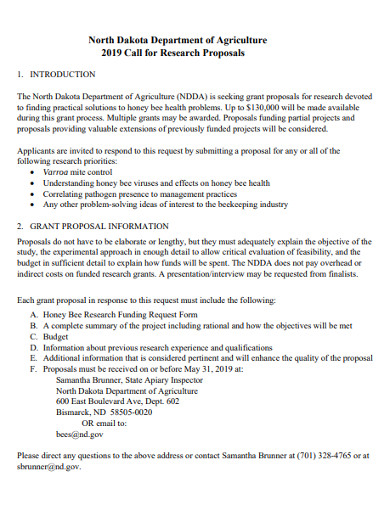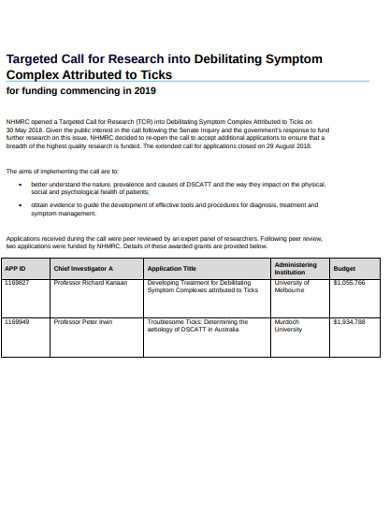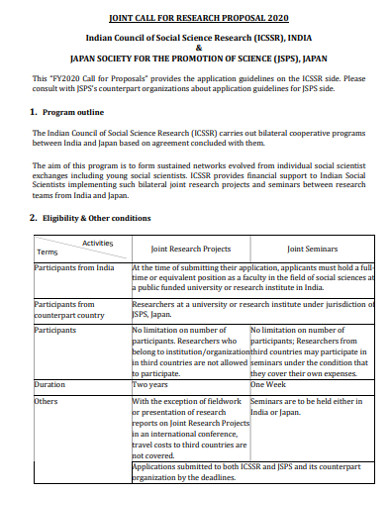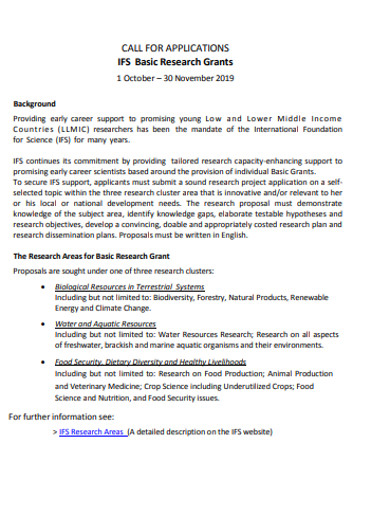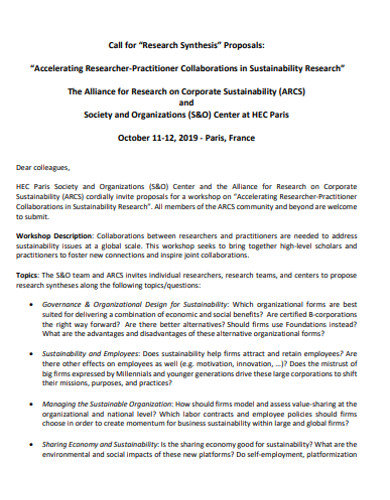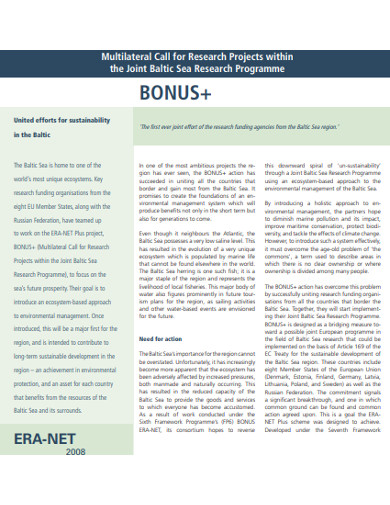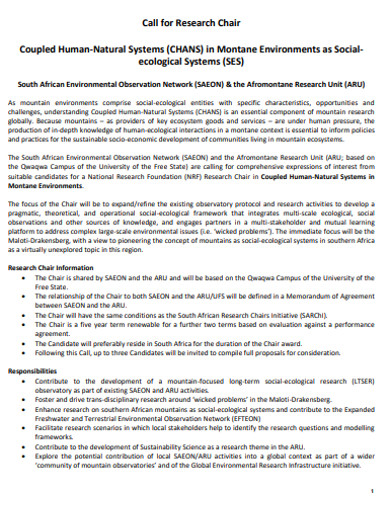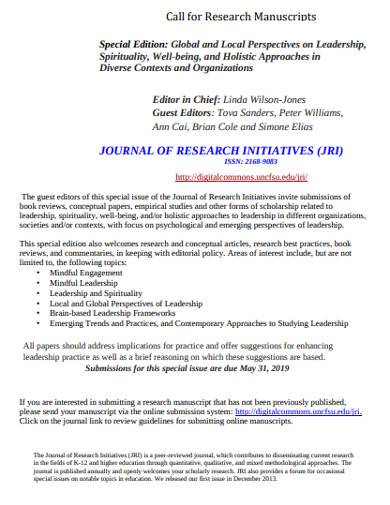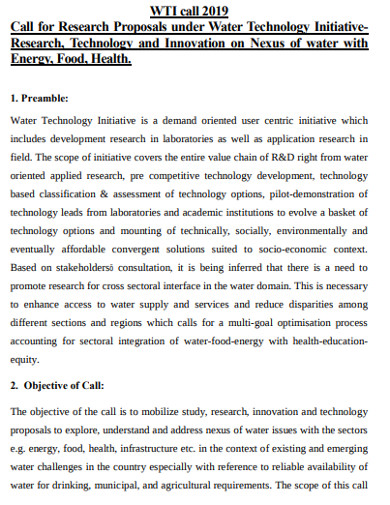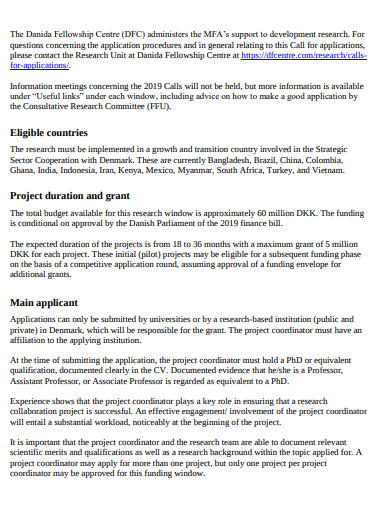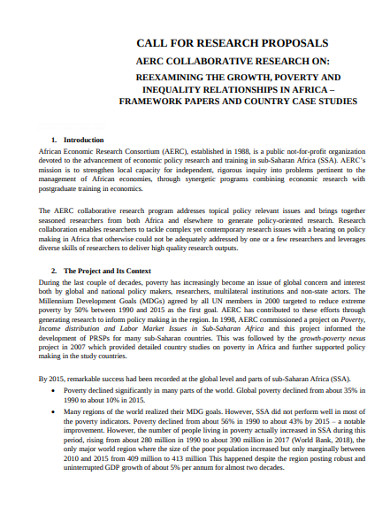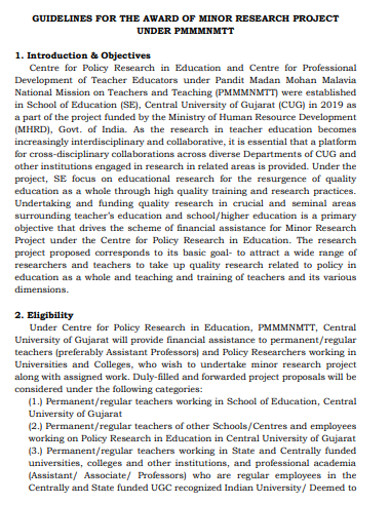10+ Call for Research Examples to Download
Whether you are planning to release the next issue of your journal, or you are organizing an academic conference, you are going to need the scholars in the field of concern to submit their original research papers. Instead of emailing all of the academics you know, you can put up a call for research papers on your website, social media pages, and inside universities.
A call for research papers is an invitation for researchers and academics to participate in a gathering of brilliant minds in the field. Interested researchers can express their intent to participate by sending you abstracts of original scholarly articles. If it is for a journal, the articles will be up for peer review. For conferences and workshops, a committee will screen the submissions and send out confirmation emails to the people whose research papers and articles are accepted for presentation. The call can also be an invitation for esteemed academics to speak at the conference.
Popping The Science Bubble
It wasn’t always that scientific findings were made known outside the academic circle. Communication about scientists’ findings and discoveries were like whispers within the scientific community, available to only the very few. Private entities funded scientific studies and received the results in return. It wasn’t until science-born innovations in the 19th century began to positively impact how people lived that public institutions began sponsoring research studies. With that, research was gaining a wider audience.
Diffusion Of Knowledge
With the realized potential scientific pursuit for future developments, research grants and funding have been made available to studies that align with an entity’s principles and goals. Another catalyst for the exposition of research to the public also occurred in the 19th century. Knowledge was no longer confined within elite circles as industrialization allowed for more inclusive learning, uplifting the literacy of the common man. The interest in science and research increased. By the end of the century, scientific communication exists in publicly accessible mediums for public consumption.
Stewards Of Science
Today, access to research articles and scientific buzz is a lot easier, thanks to a variety of communication media that people can subscribe to. It is our responsibility as an academic institution and scientific organization to keep the lines open between scientific knowledge and society. Media like online and printed journals allow the public to learn about the recent advances in different scientific fields. They also serve as official chatboxes for scientists to discuss with fellow academics the current research projects and happenings in the community. Meanwhile, conferences are a more personal platform for this conversation. These events also allow students to interact with and learn from mentors and veteran scientists.
10+ Call for Research Examples
A call for research, therefore, is more than a formal invitation for scholarly work and participation. It allows for the growth and dissemination of scientific knowledge. After all, it was the availability of knowledge that ignited the masses’ interest in science and research. That raging fire brought us to where we are today. It is beneficial that we keep these learning channels open through the calling for submission of research papers and articles.
1. Call for Agriculture Research Example
2. Call for Targeted Research Example
3. Joint Call for Research Example
4. Basic Call for Grant Research Example
5. Call for Research Synthesis Example
6. Multilateral Call for Research Example
7. Call for Research Chair Example
8. Call for Research Manuscripts Example
8. Formal Call for Research Example
9. Printable Call for Research Example
10. Standard Call for Research Example
11. Call for Research Projects Example
Calling for Research Papers
Anyone can announce research paper submissions, but not all of these notices will be well-received. How do you make your bulletin informative and noticeable to your desired audience?
1. Ditch Black And White
Get creative. No metric imposes a standard paper-and-plain-text format for your announcement. Instead of following the black and white crowd, add color or photos in your poster and online post. A well-made, professional poster will make your announcement appear official and legitimate. This will also give you good quality submissions.
2. Full Disclosure
Don’t skimp on the important details. State in your notice the scope and focus of your journal issue or the motive for the call in your conference poster. Elaborate why the research on a topic is timely and relevant, how your institution is related to the issue, and how it will impact society. However, this doesn’t mean that you slap a novel in your notice. Keep the details informative and concise.
3. Keep In Touch
Include the contact details, such as phone numbers, email addresses, and websites in your creative poster for a call for research papers. Should there be any questions, people can contact your organization for clarification. Print the submission instructions clearly. This section includes where and when to send the abstracts of the research papers.
4. Use Different Platforms
You can contact universities and ask if you can post notices inside the campuses. This approach will encourage students to join your event. You should also take advantage of the virality of social media posts. Create a page for your institution and establish a following. Posting in platforms like Facebook costs less money and effort than printing high-resolution posters. One of the determinants of a trustworthy organization is a well-maintained website. Aside from legitimacy, posting notices is also easier and faster.
You can make use of all these tips in your next call for research papers. With the threat of predatory journals that rob from and take advantage of vulnerable researchers, it is worth noting that the quality of your bulletin will significantly influence the quality of research article submissions.



